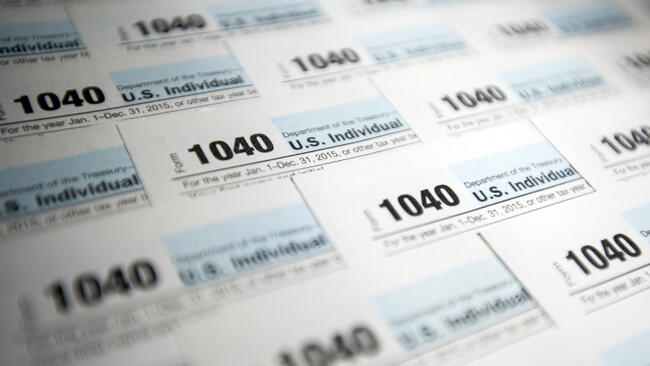Tax abatement: What you should know
Tax abatement: What you should know
Tax abatement: What you should know

Tax abatements can help you save money on tax bills owed to state or local municipalities. These abatements are most common with property taxes and are meant to encourage people to buy homes or other properties in certain locations or developments. Property tax abatements can benefit individual property owners as well as businesses, although you typically have to meet certain qualifications before you can claim them.
What is a tax abatement?
A tax abatement is a reduction in how much tax you may owe. They typically relate to property taxes. Cities and other municipalities use tax abatements as a perk to attract residential home buyers, landlords, and businesses to the area. While property tax abatements don't typically reduce a property tax bill to zero, they can provide significant enough savings to be a benefit worth considering.
What's the difference between property tax abatement and property tax exemption?
A property tax exemption does reduce what you might owe in property tax to zero. In some cases, businesses or individuals may qualify for a property tax exemption due to special programs or considerations. However, these programs may only last for a short period or cover 1 year, while property tax abatements often last much longer — sometimes even decades. You may be able to pair exemptions and abatements, which means that once your exemption has expired, you could pay less in property taxes via an abatement program.
How does an abatement work?
Property tax abatements are a discount on the property taxes that would normally be owed. They work very much like the discount you might receive when shopping in a retail store, although they're offered by local or state governments and can last for different periods of time.
For example, you might be on the email list for a local clothing boutique. If the store sends out a 50% off coupon and you use it to shop, you would only have to pay half of the cost for the items you buy. If a city offers a 50% off tax abatement for your property type, you only pay half the property tax that would normally be owned according to the city's property tax rules.
Obviously, when it comes to property tax, it's not as simple as receiving a coupon and cashing it in at the register. Property tax abatements can be offered as one-offs to specific businesses or as a program that you can apply for. In the first case, cities or other municipalities may negotiate the tax abatement with a business to get them to build or purchase property in the area. In the second case, the abatement program may be open for any qualifying property owner or buyer, but you would have to do the research to see if you qualify and then apply for the abatement.
In some cases, states, counties, or cities may offer sweeping property tax abatement programs, which may apply the abatement across the board automatically for any property that meets the requirements. For example, the Commonwealth of Virginia passed a law in 19981 that provides a certain percentage of vehicle property tax relief on qualifying trucks and cars every year. In this case, the tax abatement is automatically applied when vehicle property tax bills are mailed by counties each year.
Property tax abatements can be a flat rate for a certain number of years, such as 50% for 10 years. They can also be adjustable, which is usually an option used to phase in full property tax. For example, a city might offer a phased-in property tax program that lasts 10 years. In this situation, you might pay 10% of the regular property tax the first year and 20% the second year, with it increasing each year until you pay the full 100%.
Benefits of a tax abatement
The first and most obvious benefit of tax abatements for individuals and businesses is savings. Imagine that your property tax would be $5,000 per year, but you have a 50% tax abatement in place. That's a savings of $2,500, which isn't insignificant. You could use that money to pay another type of tax bill, cover some costs of living, or invest back into a business.
Tax breaks for businesses
For businesses, property tax abatements can provide room to pass on savings to others, which can mean being more competitive in the market. For example, some property owners in New York City can take advantage of a 421a tax abatement.2 This is a program to help support converting commercial buildings3 located in Manhattan, the Bronx, Brooklyn, Queens, or Staten Island into residential condos or other living units. Because the owners of these buildings get a break on property taxes, they can pass some savings on to home buyers or tenants, potentially making the units more attractive.
Tax abatement benefits definitely aren't one-sided. The governments issuing the abatements typically benefit by being able to better attract residents and businesses, supporting overall growth for towns, cities, and other municipalities. This is especially true when governments are offering tax abatements for businesses, which may lead to:
- More jobs in the city or region
- New buildings, such as retail shopping centers or medical facilities
- Businesses investing in other infrastructure, such as power lines or roads
Potential disadvantages of a tax abatement
The individual or business saves money, and the city attracts new residents. It might not sound like there's room for a downside to tax abatements, but there are definitely a few things that are important to consider when you're looking to save money via these agreements or programs.
Less desirable neighborhood
Many times, cities create zoning so that tax abatement programs are specifically applied to what might be considered less desirable neighborhoods. These might be urban environments that have become run down over the years and require a lot of revitalization effort to bring them back to prime condition. It's also common for tax abatement programs to include rural or undeveloped areas on the outskirts of the city.
In both cases, the purpose of the tax abatement is to encourage people and businesses to buy properties and invest in them. The thought process is that if enough businesses or individuals do this, the area can be developed, built up, or revitalized, and that will bring in other residents and businesses in the future.
Of course, this can be a bit of a gamble. If you invest in property in such an area and it doesn't take off, your property values may remain flat or decrease. That could lead to a loss if you want to sell the property in the future. If you're buying or building in the area as a business and the neighborhood isn't revitalized, you may also struggle to attract customers, resulting in poor business performance. Working with a realtor who has experience in the area can help you understand growth and revitalization trends and gather the information you need to make the right decision for your business or home.
Abatement period
Abatements generally aren't forever. Although some can last for 20 to 30 years — especially if they're negotiated by cities to bring in a large or beneficial business — the savings do eventually come to an end. When your abatement period runs out, it can mean a significant jump in property tax costs. This is one reason a phased-in property tax abatement can be beneficial; paying a little more each year can help you slowly adjust your budget to accommodate the cost.
You shouldn't just be concerned with how the end of the property tax abatement impacts your own budget. It may also impact whether and how you can sell the property. For example, if the abatement period has ended and property taxes are $7,000 more a year than they were during the abatement period, you may have to lower your asking price to account for the tax expense the buyer will incur.
Change in tax rate
It's also important to note that property tax rates can change over time. You should never count on your property tax bill remaining at a static number, even if you have an abatement. How much you pay depends on the property tax percentages or other rules set up by the city, county, or state where the property is located. The abatement doesn't set that amount; it only offsets it.
For example, imagine you have a 25% abatement. When you purchase the property, the location has a 2.5% property tax in place. If your property is worth $300,000, the regular property tax is $7,500. With the 25% abatement, you would owe $5,625.
However, if the city raises the property tax percentage to 4%, that's a total regular property tax of $12,000. With the abatement, you would pay $9,000. You still save a decent amount on the property tax, but you pay more than you were before. Ensuring you're aware of any changes in local or state property tax laws is essential to proactively budget for these expenses.
Our take
Property taxes aren't the only thing you should consider when buying property. Being aware of PITI (principal, interest, taxes and insurance) and how it impacts your mortgage is also essential. Depending on your life situation, you might also want to consider other tax breaks and benefits.
Whether you're getting your financial ducks in a row to purchase property, want to plan ahead for retirement, or simply want the peace of mind that comes with knowing your money is managed, our tools can help.
1 Hampton Virginia, “Personal Property Tax Relief Act.”
2 NYC Housing Preservation & Development, “Tax Credits and Incentives 421-g.”
3 NYC Housing Preservation & Development, “421a Exemption.”
RO2787327-0323
The content contained in this blog post is intended for general informational purposes only and is not meant to constitute legal, tax, accounting or investment advice. You should consult a qualified legal or tax professional regarding your specific situation. No part of this blog, nor the links contained therein is a solicitation or offer to sell securities. Compensation for freelance contributions not to exceed $1,250. Third-party data is obtained from sources believed to be reliable; however, Empower cannot guarantee the accuracy, timeliness, completeness or fitness of this data for any particular purpose. Third-party links are provided solely as a convenience and do not imply an affiliation, endorsement or approval by Empower of the contents on such third-party websites. This article is based on current events, research, and developments at the time of publication, which may change over time.
Certain sections of this blog may contain forward-looking statements that are based on our reasonable expectations, estimates, projections and assumptions. Past performance is not a guarantee of future return, nor is it indicative of future performance. Investing involves risk. The value of your investment will fluctuate and you may lose money.
Certified Financial Planner Board of Standards Inc. (CFP Board) owns the certification marks CFP®, CERTIFIED FINANCIAL PLANNER™, CFP® (with plaque design), and CFP® (with flame design) in the U.S., which it authorizes use of by individuals who successfully complete CFP Board's initial and ongoing certification requirements.





